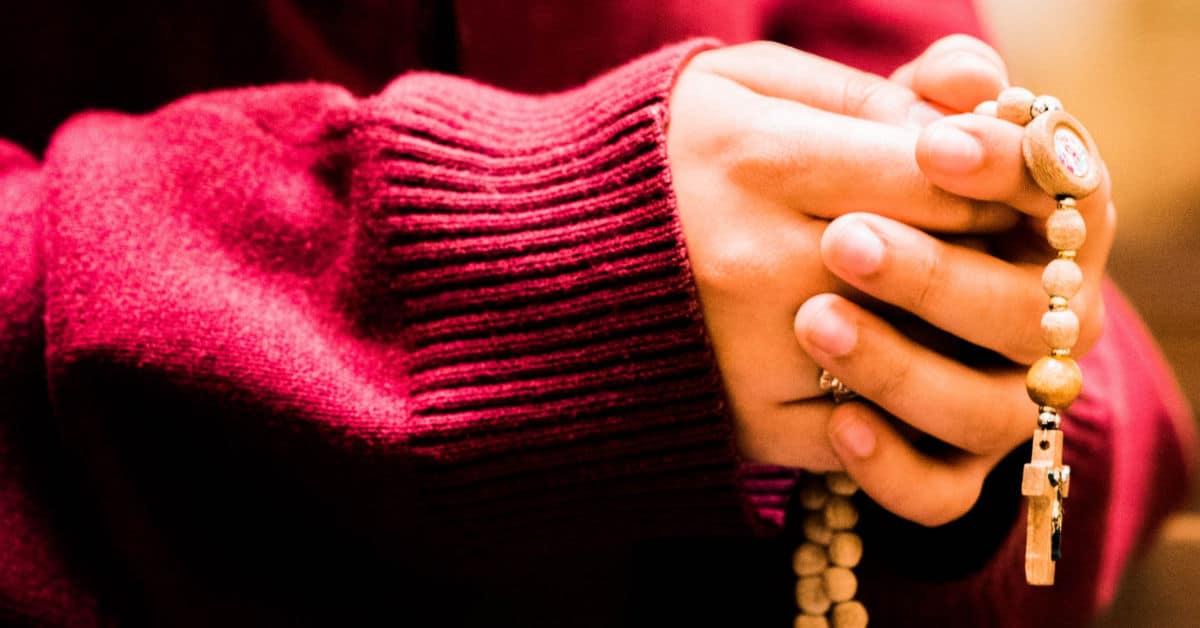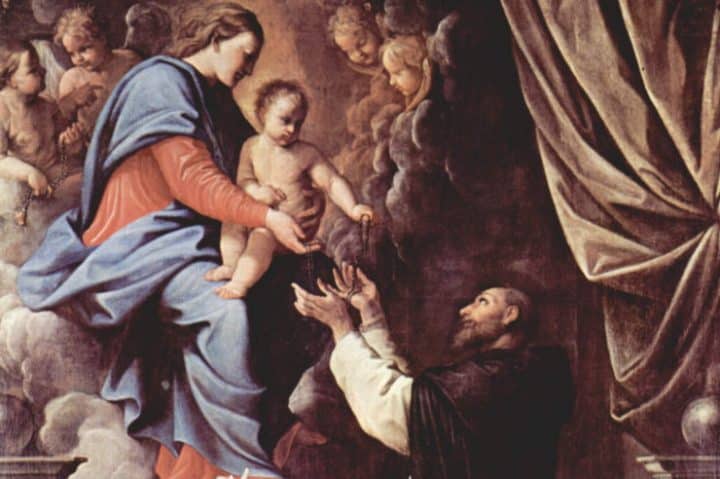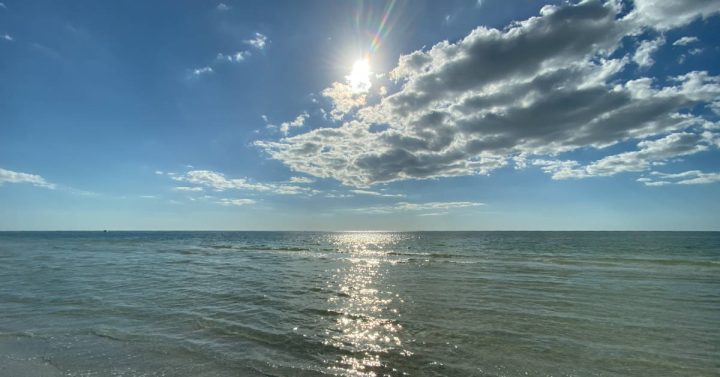
The Memorial of Our Lady of the Rosary
Have you ever experienced the peace and grace that is gained from a fervent praying of the Rosary? For many Catholics, the prayers of the Rosary are like an old friend whose company never grows old. With Jesus as our brother, we cherish the time we are able to spend with His Blessed Mother for she is our mother too. One the great examples from history of the power God grants to the Rosary is remembered on this Feast each year.
This Memorial of ur Lady of the Rosary (October 7) finds its origins in the defeat of the Turkish fleet by Christian naval forces at Lepanto on October 7, 1571. The victory was attributed by Pope Pius V to Mary’s intercession as people all across Europe prayed the Rosary on that day for victory. As a result, he established the Feast of Our Lady of Victory in thanksgiving to God.
This began as a local feast. In 1716, Pope Clement XI made this a feast of the universal Church. The name as we know it today was adopted in 1573.
Pope Leo XIII recalled the event leading to this feast in his encyclical, Supremi Apostolatus Officio:
“The efficacy and power of this devotion was also wondrously exhibited in the sixteenth century, when the vast forces of the Turks threatened to impose on nearly the whole of Europe the yoke of superstition and barbarism. At that time the Supreme Pontiff, St. Pius V., after rousing the sentiment of a common defence among all the Christian princes, strove, above all, with the greatest zeal, to obtain for Christendom the favour of the most powerful Mother of God. So noble an example offered to heaven and earth in those times rallied around him all the minds and hearts of the age. And thus Christ’s faithful warriors, prepared to sacrifice their life and blood for the salvation of their faith and their country, proceeded undauntedly to meet their foe near the Gulf of Corinth, while those who were unable to take part formed a pious band of supplicants, who called on Mary, and unitedly saluted her again and again in the words of the Rosary, imploring her to grant the victory to their companions engaged in battle. Our Sovereign Lady did grant her aid; for in the naval battle by the Echinades Islands, the Christian fleet gained a magnificent victory, with no great loss to itself, in which the enemy were routed with great slaughter. And it was to preserve the memory of this great boon thus granted, that the same Most Holy Pontiff desired that a feast in honour of Our Lady of Victories should celebrate the anniversary of so memorable a struggle, the feast which Gregory XIII. dedicated under the title of “The Holy Rosary.” Similarly, important successes were in the last century gained over the Turks at Temeswar, in Pannonia, and at Corfu; and in both cases these engagements coincided with feasts of the Blessed Virgin and with the conclusion of public devotions of the Rosary. And this led our predecessor, Clement XL, in his gratitude, to decree that the Blessed Mother of God should every year be especially honoured in her Rosary by the whole Church.”
– Pope Leo XIII; Supremi Apostolatus Officio, 4; September 1, 1883
There is plenty of evidence in many of our own lives of the power of God in the efficacy of the Rosary. Let us, in thanksgiving to God, attend Holy Mass and pray a Rosary for peace and then get about the work of peace.
Into the deep…
Please help spread the Gospel. Share this article with family and friends on Facebook and other social media.
Photo by Gianna Bonello on Unsplash
Please don’t pass by, we need your help…
Please help us. We strive to operate on a very small budget, but we need your help. Both one-time and monthly donations are welcome. Just $10 a month will help cover the cost.




